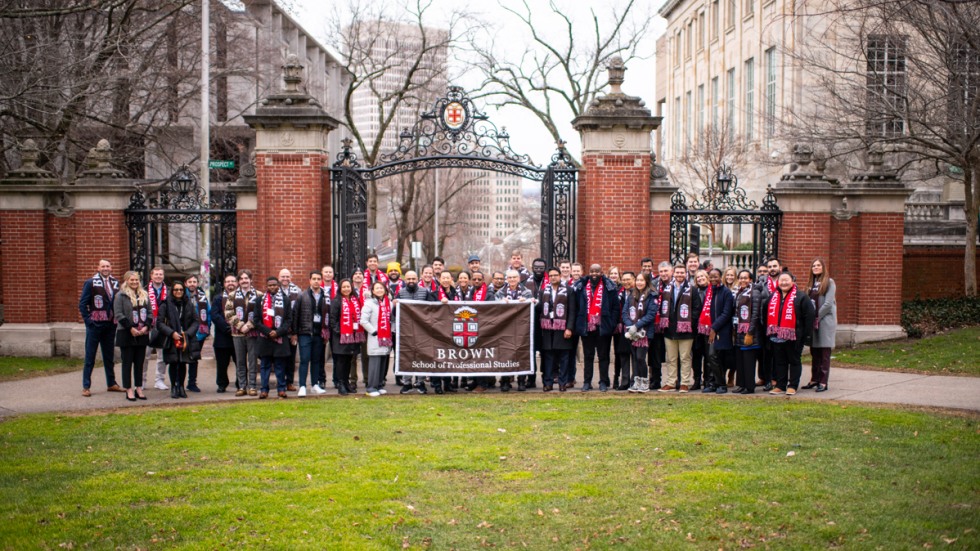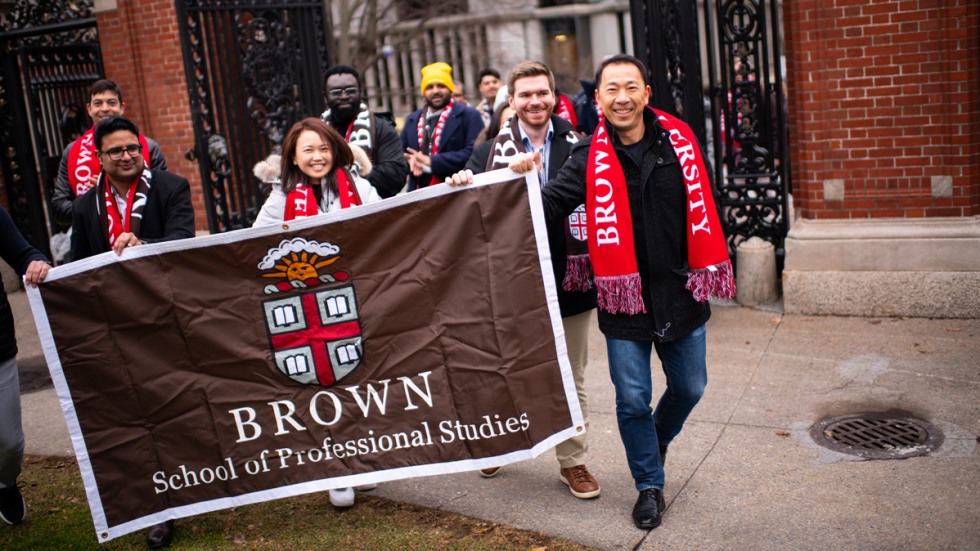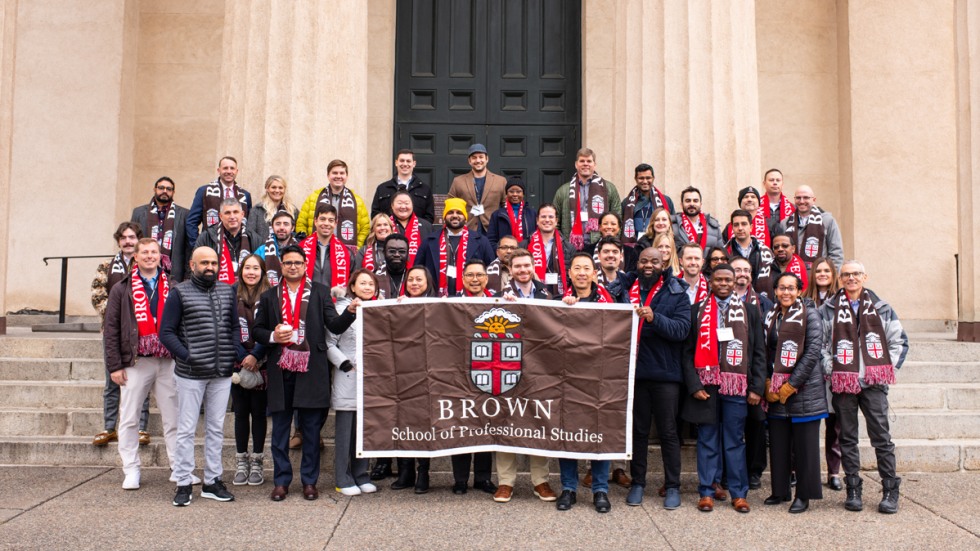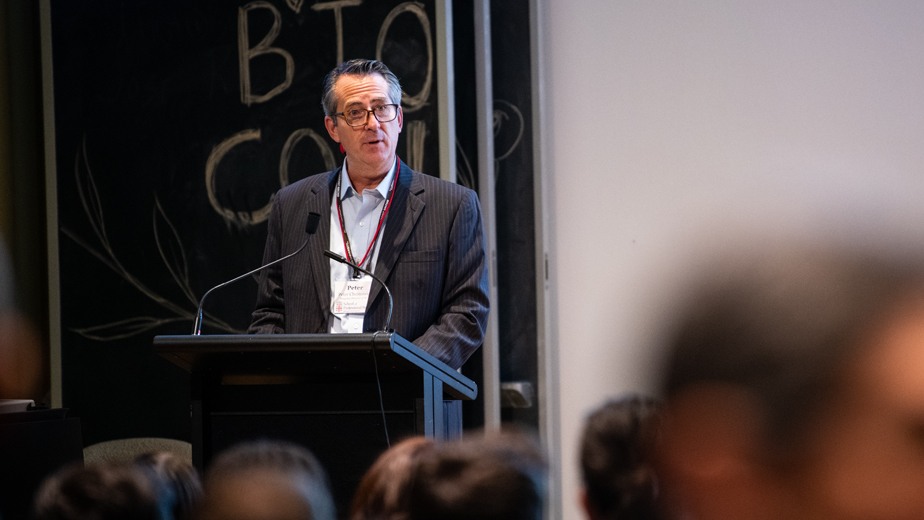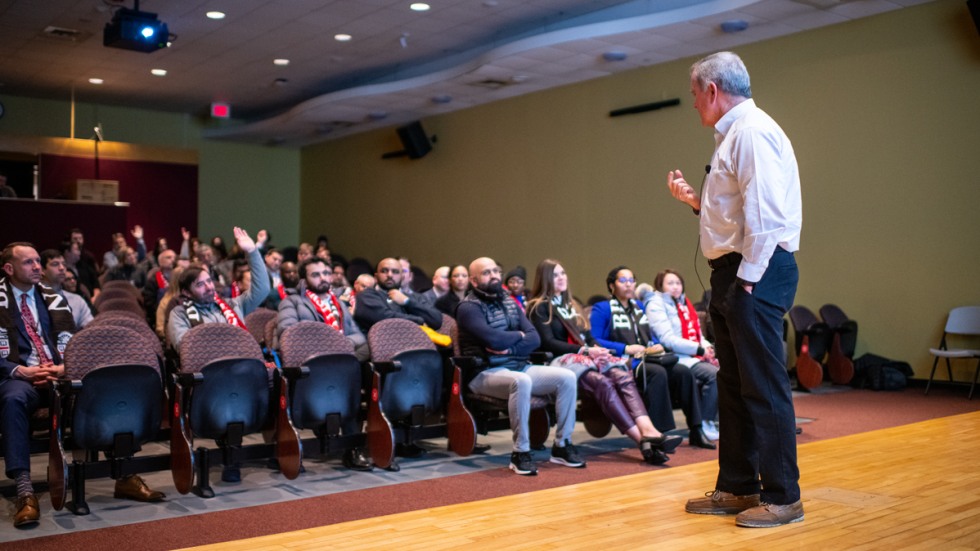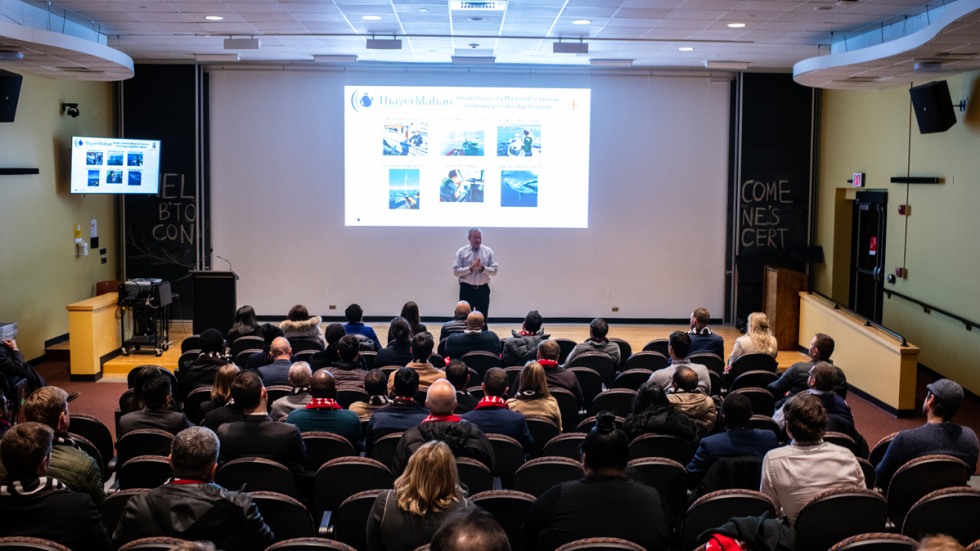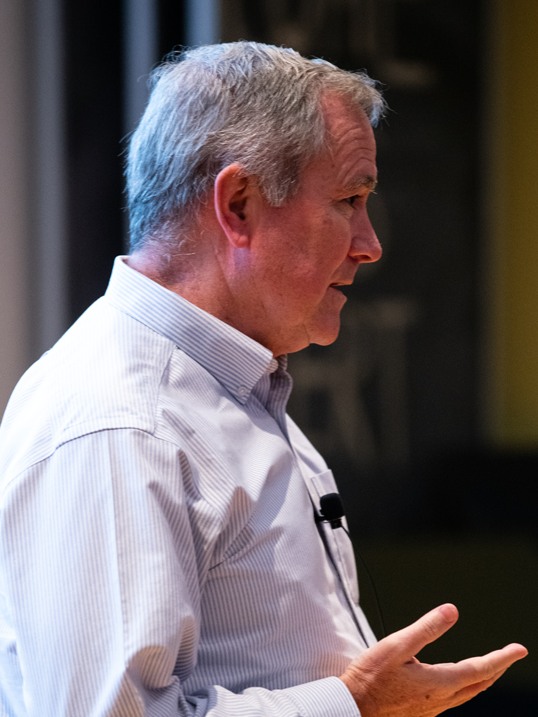Other noteworthy lessons he learned throughout his career include how to deal with setbacks, why you must invest in people and provide them the right environment to excel, and how to unlearn in order to do the impossible.
He elaborated, “We’ve found the best customers are those that don’t have 30 years of experience on what is impossible. Getting people to unlearn what they know to be impossible, so they can reexamine what is possible, is a hard part of the job.”
Connor’s speech concluded with an opportunity for students to ask questions.
After the early morning events, students reconvened in the classrooms at 225 Dyer Street, home of SPS. Here they kicked off their first academic portion of the program with Professor Barbara Tannenbaum’s course on Persuasive Communication. The remainder of their first residential week in Providence is filled with courses on Effective Leadership with Robert Allio, Technology Leadership in a Changing Environment with Donald Stanford and guest speaker Anne Washington, a public interest technologist and assistant professor of data policy at NYU.
This impressive class of 47 — the largest since the inception of the program in 2017 — includes professionals with an average of 15 years of experience from various sectors such as aerospace and defense, manufacturing, finance, cybersecurity, and transportation. Over the 16 month, hybrid program, Master’s in Technology Leadership students transform from technical experts into strategic and impactful thinkers prepared to manage technological change in today’s global economy. Students learn from outstanding faculty from Brown’s School of Engineering as well as highly accomplished practitioners. The program’s capstone, the Critical Challenge Project, allows students the opportunity to work one-on-one with a faculty advisor to address a real-time challenge related to their field and interests.
.jpg)
